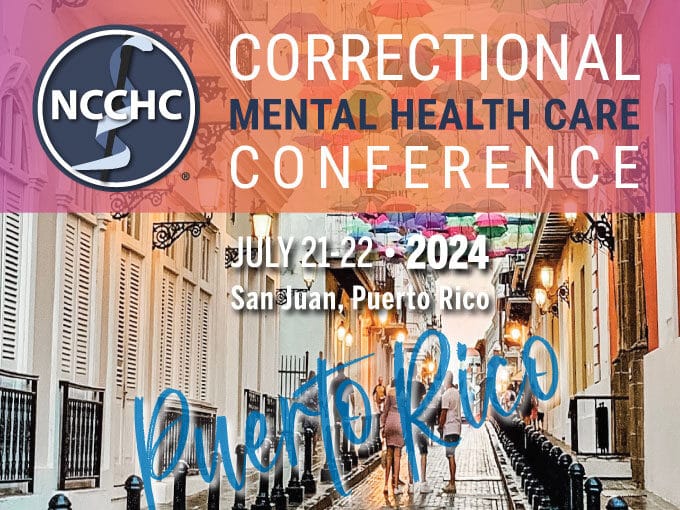
Say hola to Puerto Rico
The 2024 Correctional Mental Health Care Conference will be held in sunny San Juan!
Home Vaccine Resistance: Take a Stand
 Mar 31, 2021
Mar 31, 2021A recent article in the Chicago Tribune pointed out that COVID-19 vaccine rates for prison staffers were alarmingly low. “In Massachusetts, more than half the people employed by the Department of Correction declined to be immunized. A statewide survey in California showed that half of all correction employees will wait to be vaccinated. In Rhode Island, prison staff have refused the vaccine at higher rates than the incarcerated, according to medical director Dr. Justin Berk. And in Iowa, early polling among employees showed a little more than half the staff said they’d get vaccinated.”
While I hope that these attitudes change as more of the population gets vaccinated, it is critically important that staff members in jails and prisons get vaccinated and continue to take all possible precautions against the spread of COVID-19; infection rates in prisons have been estimated at more than three times as high as in the general public. In our work environment, social distancing and hygiene protocols can be extremely challenging to implement and follow. In addition, staff traveling back and forth between the community and the institutions can bring infection home or back into the facility.
Psychologically, it’s easy to understand why staff might be reluctant to factor in their work environment to their health. Personal freedoms and choices are significantly limited in the correctional workplace. In an environment of low-trust and limited freedom, when an opportunity to make a choice surfaces, many may act in a contrarian fashion and refuse something that otherwise would be a prudent measure, regardless of its merits. In addition, the politicization of the vaccine and the pandemic have introduced other considerations into what should purely be a health decision.
If you are responsible for health in your facility, or otherwise have an appropriate opportunity, please consider providing an educational program on the benefits and risks of the vaccine. This article pointed out that Dr. Tom Friedan, former head of the Centers for Disease Control and Prevention, worked with a group of vaccine-hesitant people to understand their concerns. He was able to change minds by appealing to facts and being honest about what is still unknown. The group appreciated his candor and approaching them as individuals with valid concerns. You might get a similar response in resistant groups.
Leaders in the facility, on both the health care and custody side, should strongly consider vaccination, consider sharing their choice openly, and be willing to answer questions about their experience. Leaders and medical experts can also highlight the expected challenges to the institutional operations and safety if there is another wave of staff getting sick and staying home. Lean into the trust you have been building with staff to encourage the vaccine. And, if you haven’t been building a culture of trust, now might be the time to consider how management and staff can work together better.
Vaccine education materials are available for download through this link. Let us know what works for you.
By Brent Gibson, MD, MPH, CCHP-P
Chief Health Officer, NCCHC
Managing Director, NCCHC Resources


